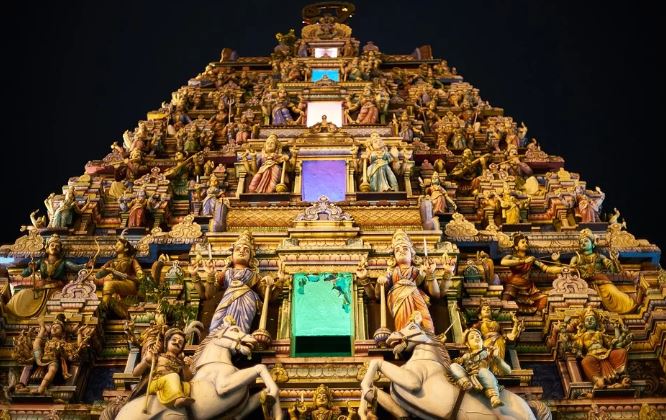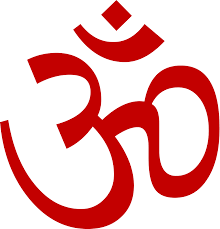The particular title on Helium caught my attention and I felt an instinctive pull to make a contribution to it. The term ‘Ishtadevtaa’ is a Sanskrit word and is related to Hinduism. Sanskrit is one of the oldest languages of the world and Hinduism one of the oldest religions.
The term ‘Ishtadevtaa’ is composite and is formed by joining the two words ‘Istaa’ and ‘Devata’. The former means ‘Favorite’ and the latter means ‘God’. The term translates as ‘Favorite God’.
Sense of gratitude and well being
Hinduism is a religion based on a sense of gratitude and well being. In Hinduism, an entity that gives you something but does not take anything in return is God. In that respect, the trees, the rivers, parents, teachers, cows are revered and worshipped. God is Omniscient and omnipresent. There is not a place or time where God is not.
There is God in everything and everybody
The concept of Devil as in Christianity and Islam does not exist. In Hinduism, the creator (Brahma) is a God, the preserver (Vishnu) is God and the Destroyer (Shiva) is a God too. This is to recognize Destruction as an integral part of the Cycle of Life. Destruction is necessary for Construction and to maintain Equilibrium.The all-powerful trinity of the Creator ‘Brahma’, the Preserver ‘Vishnu’ and the Destroyer ‘Shiva’ form the basis of Hinduism.
Hindu Mythology, as evident in the written scriptures and great epics, talks about millions of Gods and demi-Gods. There are the nature Gods like the sun, the moon, Rivers, Rain, Mountains, Wind, and Sea which are worshipped. There are the ‘Avatars’ (Human manifestations of the God who come up to the earth to destroy the evil and set an example for the mankind) like Ram, Krishna, Sita, Radha, Hanuman, Pashu Ram who are worshipped fervently. And then, there are the reincarnations of the celestial beings who are worshipped in many forms. Each of the Gods has a different and distinctive personality. While Ram is patient, calm, obedient and truthful, Krishna is playful and manipulative. The offerings to be made and rituals to be performed for each of the Gods is different (and in accordance with their personality and origin).
Concept of ‘Ishtadevtaa’
So Many Gods to be worshipped, So less time. The Concept of ‘Ishtadevtaa’, enables you to choose your God and devote your life unto him. I might choose the fun-loving and auspicious son of Shiva, the elephant God ‘Ganesha’ as my ‘IshtaDevta’ and find happiness in worshipping him, reading his stories, listening to the hymns composed in his honor and offering ‘laddu’ (sweets) to him. And You could choose the Goddess Kali, as your ‘Ishta’ and devote your life fighting again deceit and wrong since that is what Kali signifies.
 Choose your Path. Choose your God. The religions Buddhism and Jainism have much in common with Hinduism especially with the concepts of moksha (liberation) and ahimsa (non-violence). Hinduism has a multitude of philosophies that are at times contradictory. While there is a concept of ahimsa (non-violence), there’s also a concept of ‘Bali’ or life- sacrifice. Another irony is the philosophy of ‘One God’ in Hinduism. All the Hindu Gods are said to be facets of one supreme God. The religion can be molded any which way and has a lot of scopes. The believers of contradictory Hindu philosophies co-exist and share a mutual respect. That is why religion still lives and breathes.
Choose your Path. Choose your God. The religions Buddhism and Jainism have much in common with Hinduism especially with the concepts of moksha (liberation) and ahimsa (non-violence). Hinduism has a multitude of philosophies that are at times contradictory. While there is a concept of ahimsa (non-violence), there’s also a concept of ‘Bali’ or life- sacrifice. Another irony is the philosophy of ‘One God’ in Hinduism. All the Hindu Gods are said to be facets of one supreme God. The religion can be molded any which way and has a lot of scopes. The believers of contradictory Hindu philosophies co-exist and share a mutual respect. That is why religion still lives and breathes.
The concept of ‘IshtaDevaa’ reminds me of a documentary that I saw on the Indian National Television a few years back. The Documentary was about a Hindu from Bengal who worshipped Christ. He loved Christ with all his heart. He read the Bible , composed songs for Christ and yet he stated that he was essentially Hindu. Hinduism was not only a religion but a way of life to him. To him, being Hindu meant he respected his elders, loved his juniors. That he showed gratitude to nature and That he could choose his God. His ‘Ishtadevtaa’.






